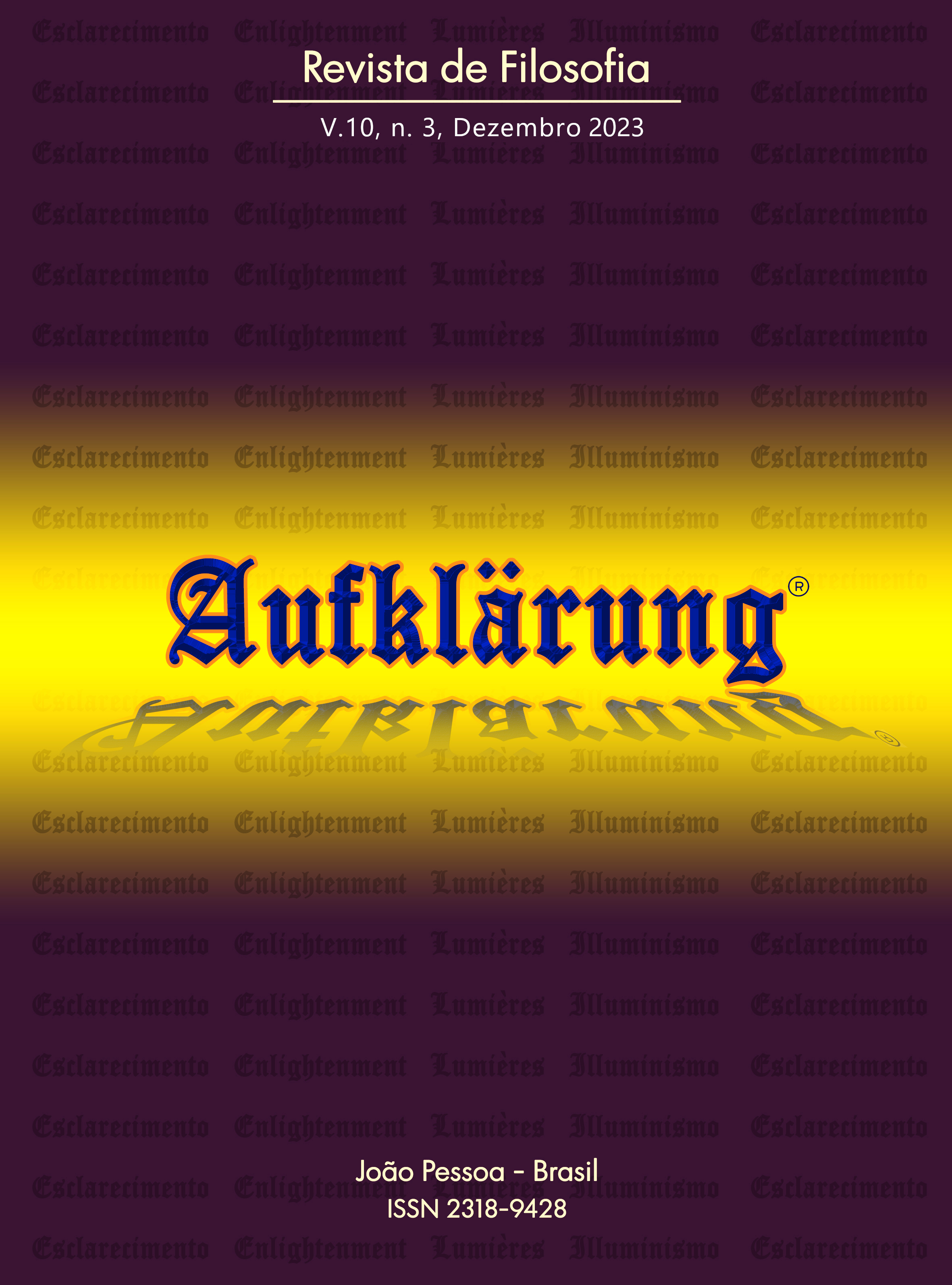The reduction sentences are easy even within a Popperian view
DOI:
https://doi.org/10.18012/arf.v10i3.66174Keywords:
Carnap, Falsifiability, Mental models, Popper, ReductionAbstract
Rudolf Carnap proposed three reduction rules to improve scientific language. Those rules indicate when it is correct to add a property in situations in which other properties are already had. Assuming the theory of mental models, it has been shown that the rules are not hard to use from the cognitive point of view. The key to argue that is to accept that the human mind works as dual-process theories claim. According to these theories, people can use two different systems. One of them implies effort but the other one does not. Thus, the idea is that Carnap’s reduction rules can be applied resorting just to the system not implying cognitive effort. This paper goes one step further and poses that even from a Popperian perspective the reduction rules keep not being difficult. One might think that falsifiability requires cognitive effort because it needs to address situations in which the sentences are false. However, this paper tries to explain that, following the theory of mental models, that is not hard if the sentences are conditionals, and the sentences in the reduction rules have conditional structures.
Downloads
References
BARRES, Patricia E.; JOHNSON-LAIRD, Philip N. On imagining what is true (and what is false). Thinking and Reasoning, 9, 1, 1-42, 2003.
BYRNE, Ruth M. J.; JOHNSON-LAIRD, Philip N. If and or: Real and counterfactual possibilities in their truth and probability. Journal of Experimental Psychology: Learning, Memory, and Cognition, 46, 4, 760-780, 2020.
CARNAP, Rudolf. Testability and meaning. Philosophy of Science, 3, 4, 419-471, 1936.
CARNAP, Rudolf. Testability and meaning – Continued. Philosophy of Science, 4, 1, 1-40, 1937.
ESPINO, Orlando; BYRNE, Rurth M. J.; JOHNSON-LAIRD, Philip N. Possibilities and the parallel meanings of factual and counterfactual conditionals. Memory & Cognition, 48, 1263-1280, 2020.
JOHNSON-LAIRD, Philip N.; KHEMLANI, Sangeet; GOODWIN, Geoffrey P. Logic, probability, and human reasoning. Trends in Cognitive Sciences, 19, 4, 201-214, 2015.
JOHNSON-LAIRD, Philip N.; RAGNI, Marco. Possibilities as the foundation of reasoning. Cognition, 193, 2019.
KHEMLANI, Sangeet; BYRNE, Ruth M. J.; JOHNSON-LAIRD, Philip N. Facts and possibilities: A model-based theory of sentential reasoning. Cognitive Science, 42, 6, 1887-1924, 2018.
KHEMLANI, Sangeet; HINTERECKER, Thomas; JOHNSON-LAIRD, Philip N. The provenance of modal inference. In: GUNZELMANN, Glenn; HOWES, Andrew; TENBRINK, Thora; DAVELAAR, Eddy J. Computational Foundations of Cognition. Austin, TX: Cognitive Science Society, 2017. 663-668.
KHEMLANI, Sangeet; ORENES, Isabel; JOHNSON-LAIRD, Philip N. The negation of conjunctions, conditionals, and disjunctions. Acta Psychologica, 151, 1-7, 2014.
LÓPEZ-ASTORGA, Miguel. Reduction, intuition, and cognitive effort in scientific language. Logos & Episteme, XII, 4, 389-401, 2021.
LÓPEZ-ASTORGA, Miguel; RAGNI, Marco; JOHNSON-LAIRD, Philip N. The probability of conditionals: A review. Psychonomic Bulletin & Review, 29, 1-20, 2022.
POPPER, Karl. Conjectures and Refutations: The Growth of Scientific Knowledge. London, UK: Routledge and Kegan Paul, 1963.
POPPER, Karl. The Logic of Scientific Discovery. London, UK: Routledge, 2002.
QUELHAS, Ana Cristina; JOHNSON-LAIRD, Philip N.; JUHOS, Csongor. The modulation of conditional assertions and its effects on reasoning. The Quarterly Journal of Experimental Psychology, 63, 9, 1716-1739, 2010.
RESTALL, Greg. Logic: An Introduction. Montreal & Kingston, Canada: McGill-Queen’s University Press, 2006.
REYNA, Valerie F. How people make decisions that involve risk: A dual-process approach. Current Directions in Psychological Science, 13, 2, 60-66, 2004.
STANOVICH, Keith. On the distinction between rationality and intelligence: Implications for understanding individual differences in reasoning. In: HOLYOAK, Keith; MORRISSON, Robert. The Oxford Handbook of Thinking and Reasoning. New York, NY: Oxford University Press, 2012. 343-365.
STENNING, Keith; VAN LAMBALGEN, Michiel. The natural history of hypotheses about the selection task: Towards a philosophy of science for investigating human reasoning. In; MANKTELOW, Ken; CHUNG, Man Cheung. Psychology of Reasoning: Theoretical and Historical Perspectives. Hove, UK, and New York, NY: Psychology Press, 2004. 127-156.
Additional Files
Published
How to Cite
Issue
Section
License

This work is licensed under a Creative Commons Attribution 4.0 International License.
Journal general policy
1.This journal works under a Creative Commons License aplied to online journals. That icence can be read in the following link: Creative Commons Attribution 4.0 International (CC BY 4.0).
2.Accordingly to this License, a)the journal declares that authors hold the copyright of their articles without restrictions, and they can archieve them as post-print elsewhere. b)the journal allow the author(s) to retain publishing rights without restrictions.
Metadata Policy for information describing items in the repository
1. Anyone may access the metadata free of charge at anytime.
2.The metadata may be re-used in any medium without prior permission, even commercial purposes provided the OAI Identifier or a link to the original metadata record are given, under the terms of a CC BY license refered for the Journal.







































